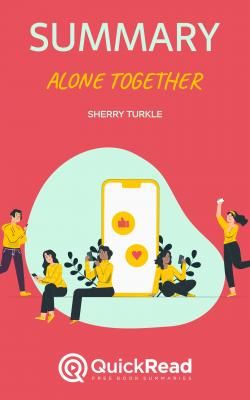

How were computers changing us as people? My colleagues often objected, insisting that computers were “just tools.” But I was certain that the “just” in that sentence was deceiving. While my computer science colleagues were immersed in getting computers to do ingenious things, I had other concerns. Computational metaphors, such as “debugging” and “programming,” were starting to be used to think about politics, education, social life, and-most central to the analogy with psychoanalysis-about the self.

I had come to MIT because I sensed that something similar was happening with the language of computers. I had just spent several years in Paris studying how psychoanalytic ideas had spread into everyday life in France-how people were picking up and trying on this new language for thinking about the self. Now I was among them and, like any anthropologist, something of a stranger in a strange land. AI scientists debated whether machines of the future would have their smarts programmed into them or whether intelligence might emerge from simple instructions written into machine hardware, just as neurobiologists currently imagine that intelligence and reflective self-consciousness emerge from the relatively simple architecture and activity of the human brain. The intellectual buzz in the still-young field of artificial intelligence was over programs that could recognize simple shapes and manipulate blocks. No one knew to what further uses home computers might be put.

The people who bought or built them experimented with programming, often making their own simple games. The first home computers were being bought by people called hobbyists. Children played tic-tac-toe with their electronic toys, video game missiles took on invading asteroids, and “intelligent” programs could hold up their end of a serious chess match. Thirty years ago, when I joined the faculty at MIT to study computer culture, the world retained a certain innocence.


 0 kommentar(er)
0 kommentar(er)
